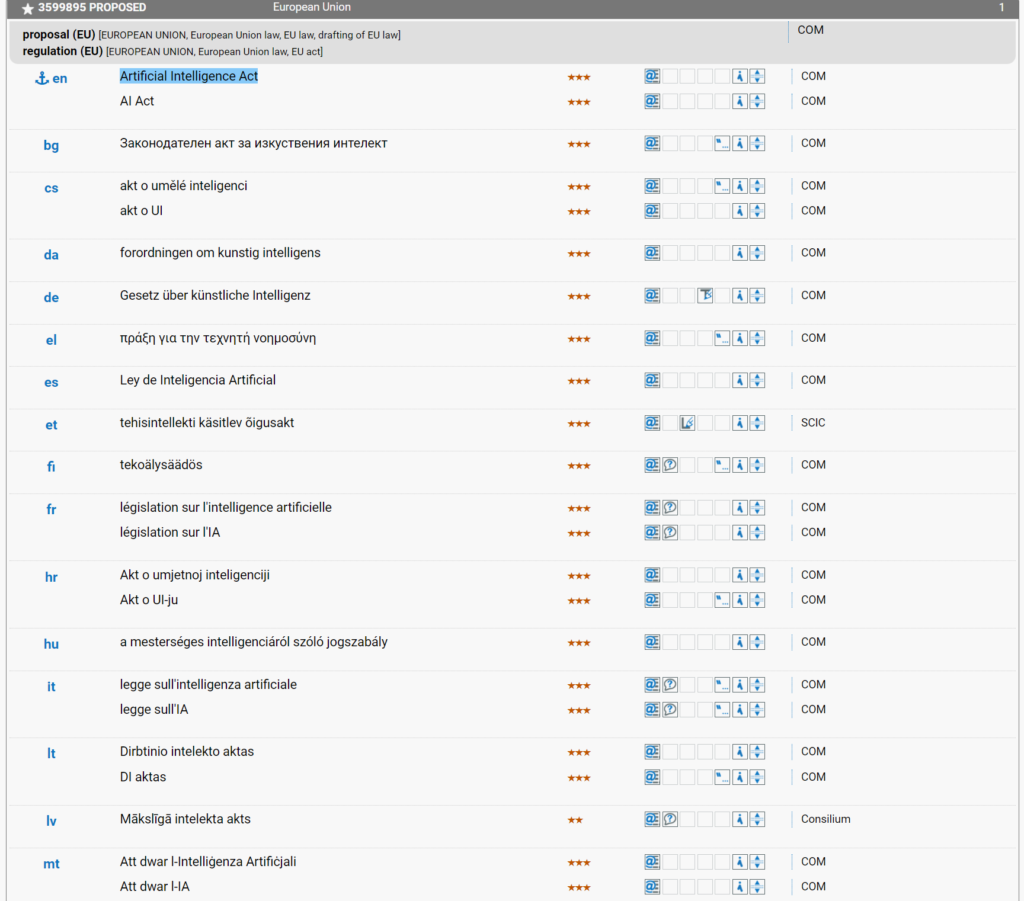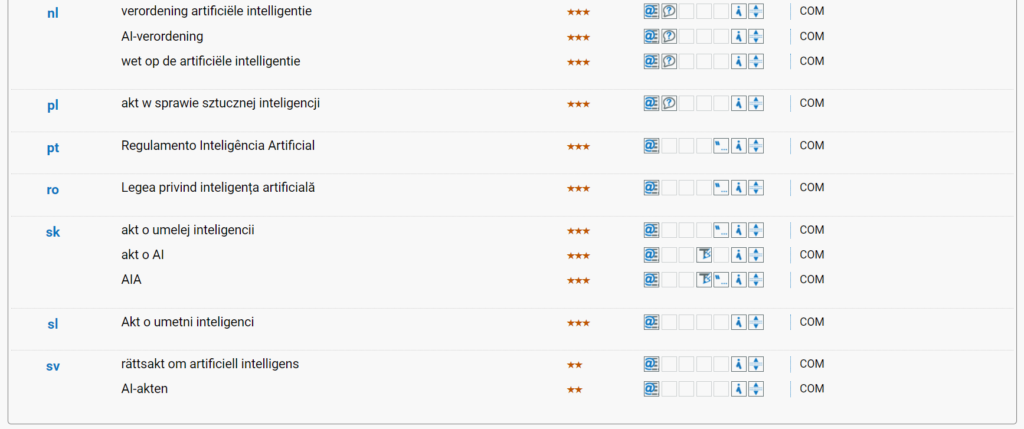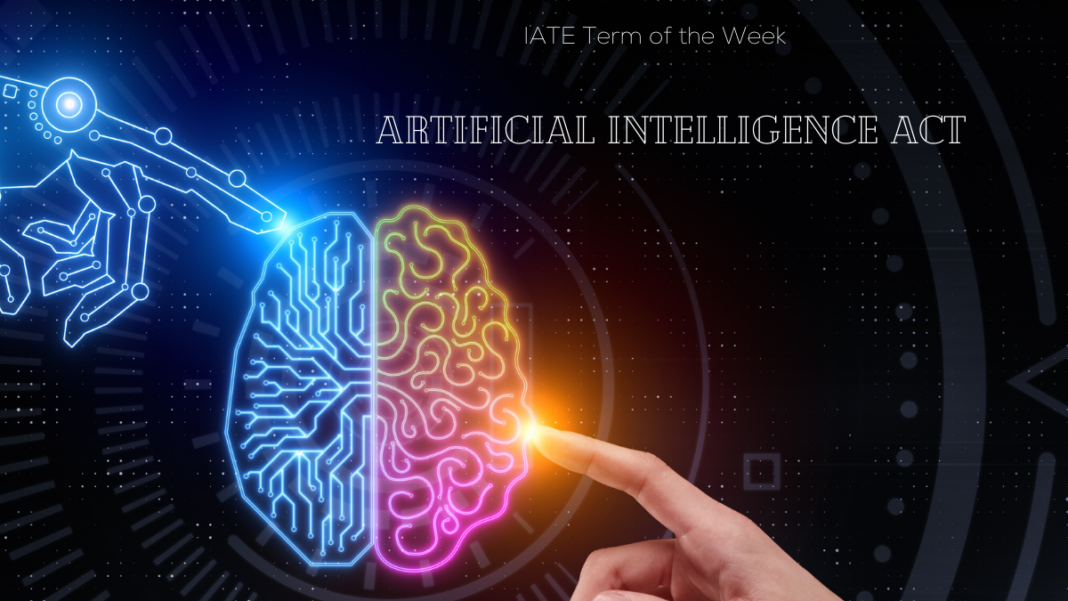The term “artificial intelligence” /AI/ was introduced in 1956. The earlier AI research focused primarily on solving simple problems and imitating basic human activity. However, it came into prominence in the recent years with the increase of the data volumes and advanced algorithms that entered our everyday lives.
Now AI is developing fast and it is here to stay and change our lives by improving healthcare, increasing the efficiency in farming, contributing to climate change mitigation and proposing solutions for many more challenges. Nevertheless, global competition in this area, has also presented many challenges in the application of this technology. It became clear that a “solid European approach” is needed in order to foster development and deployment of AI based on common EU values.


What is the Artificial Intelligence Act and why is it so important for the European Union?
The Artificial Intelligence Act was initiated in April 2021 by the European Commission and it was the first attempt to set up a horizontal regulation for AI on a European level. The general goal of this act was to enact a harmonised legal framework for the development and utilisation of AI technologies among Member States. Further to that, the AI act proposal seeks to achieve a set of specific objectives:
“(i) ensure that AI systems placed on the EU market are safe and respect existing EU law
(ii) ensure legal certainty to facilitate investment and innovation in AI
(iii) enhance governance and effective enforcement of EU law on fundamental rights and safety requirements applicable to AI systems (iv) facilitate the development of a single market for lawful, safe and trustworthy AI applications and prevent market fragmentation.”
What is the role of the European Parliament in setting up a harmonized legal framework for the use of AI?
The European Parliament is actively taking a stance in the dialogue on Artificial Intelligence. A special committee on Artificial Intelligence in a Digital Era at the European Parliament is dealing with the various proposals and reports that the institution produces in order to support and contribute to laying down a comprehensive legislative framework in the area of AI. This special Committee has 33 members and a twelve-month mandate which can be extended upon decision of the European Parliament. The main goal of this group is to seek and develop a long-term strategy on the utilisation of AI within the Union. You can follow the activities of this Committee on the dedicated page – https://www.europarl.europa.eu/committees/en/aida/home/highlights
References:
Artificial Intelligence (AI) – What it is and why it matters | SAS. 2022. Artificial Intelligence (AI) – What it is and why it matters | SAS. [ONLINE] Available at: https://www.sas.com/en_us/insights/analytics/what-is-artificial-intelligence.html. [Accessed 08 February 2022].
Artificial Intelligence Act. European Parliamentary Research Service. November 2021. Madiega, Tambiama. [ONLINE] Available at: https://www.europarl.europa.eu/RegData/etudes/BRIE/2021/698792/EPRS_BRI(2021)698792_EN.pdf . [Accessed 08 February 2022].
European Parliament. Legislative train schedule | European Parliament. 2022. [ONLINE] Available at: https://www.europarl.europa.eu/legislative-train/theme-a-europe-fit-for-the-digital-age/file-regulation-on-artificial-intelligence. [Accessed 08 February 2022].
Artificial Intelligence Act: lead committees to launch joint work on. 25.01.2022. [ONLINE] Available at: https://ec.europa.eu/info/sites/default/files/commission-white-paper-artificial-intelligence-feb2020_en.pdf. [Accessed 08 February 2022]. Special committee on artificial intelligence in a Digital Age (AIDA) – EU monitor . 2022. Special committee on artificial intelligence in a Digital Age (AIDA) – EU monitor. [ONLINE] Available at: https://www.eumonitor.eu/9353000/1/j9vvik7m1c3gyxp/vl9niy7gfzw5. [Accessed 11 February 2022].

Daniela holds degrees in both Public Relations and European Governance. Currently, Daniela is combining her passion for communications and social media with her interest in the work of European institutions.

